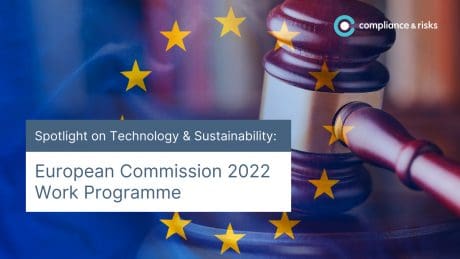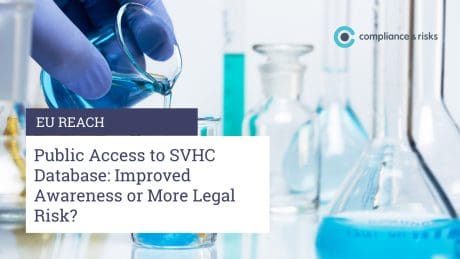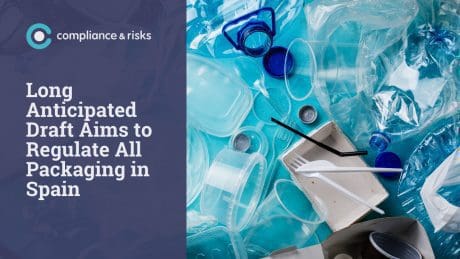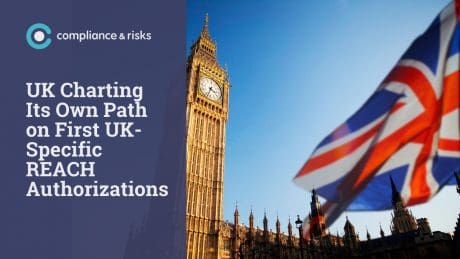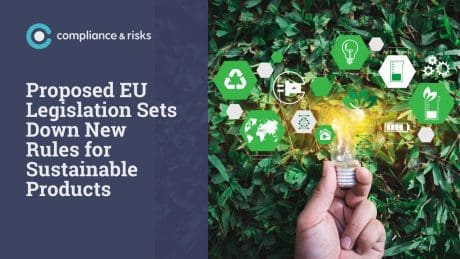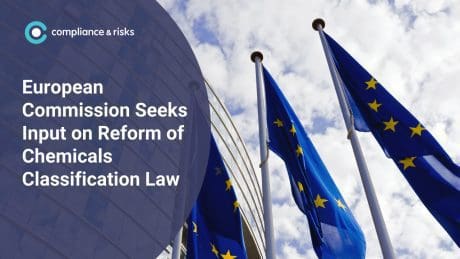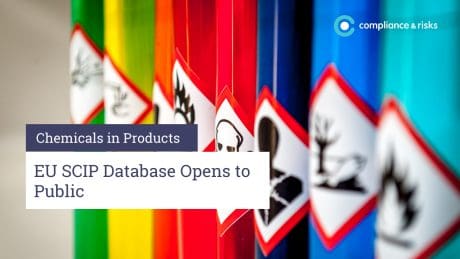
COVID-19 Regulatory Developments: Update 9
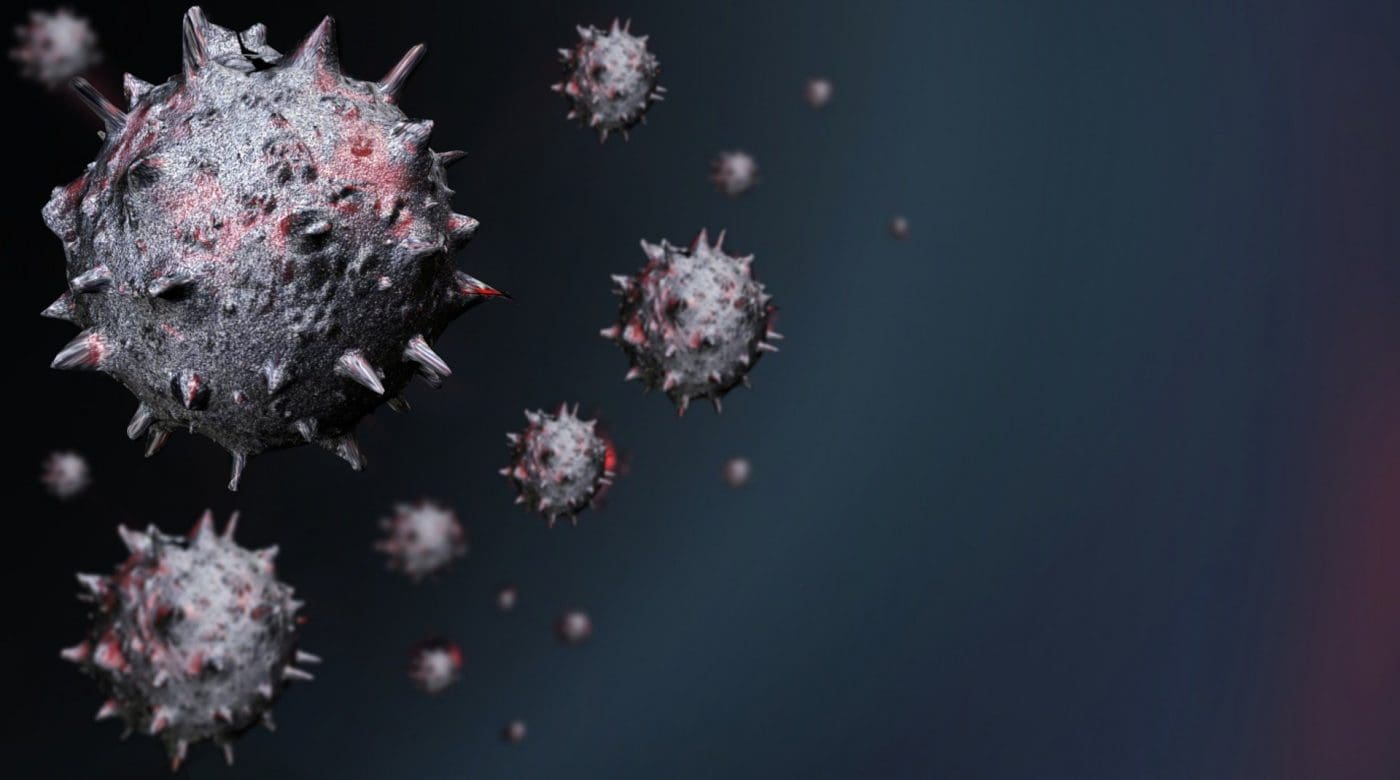
The outbreak of the COVID-19 pandemic has resulted in countries adapting their regulatory landscape to accommodate and mitigate the unprecedented disruptions to companies and individuals. Through regular updates, Compliance & Risks will closely monitor the situation and inform our clients of the latest global regulatory developments in relation to COVID-19 relevant to their topics, along with updates on items which may be of interest outside our topics.
Hopes to see the global pandemic fade away have led regulators to focus their efforts on preparing a safe reopening of society and businesses. Policymakers and employers are now facing new challenges to re-organize and ensure continuity of workplaces. This update focuses on occupational health and safety, as well as other key regulatory developments in the areas of product safety, certification and protective equipment.
Product Safety
The Russian Federation’s Ministry of Industry and Trade in conjunction with the Ministry of Economic Development of the Russian Federation and the Federal Accreditation Service have developed extended recommendations on temporary measures for the implementation of inspection controls, samplings and other schedule work during COVID-19. With respect to valid certificates of conformity for serial production, the recommendations provide for the possibility to postpone for up to 6 months the next inspection controls where such an inspection was scheduled between 15 March and 31 December 2020.
With regard to certificates of conformity for serial products whose validity expires during the period between 15 March and 31 December 2020, as well as for certification of new products that have slight differences in design (formulation) and production technology that do not affect its safety, by the authority for certification, a new serial certificate can be issued. A new serial certificate may also be issued for serial products whose certificate of conformity expires between 15 March and 31 December 2020, as well as for certification of new products that have slight differences in design and, or production technologies that do not affect is safety. Inspection controls of certified products shall be carried out within a period not exceeding six months. Further instructions are provided for the person responsible for carrying out sampling controls. In the case of serial certification of products, the recommendations stipulate that “sampling may be carried out by the representative of the applicant (manufacturer) at the finished goods warehouse having an appropriate level of competence, under the remote control of a certification”. The certification body “must ensure the documentation of the remote sampling procedure, as well as the storage of the video recording materials of the procedure in the certificate of compliance”. For further information, please consult the official publication available here.
On 15 May 2020, Belgium notified the European Commission its intention to adopt a Royal decree banning the placing on the market and use of UV-C lamps for disinfection purposes in non-hospital settings in the context of COVID-19. This draft decree came as a result of the opinion of the Superior Health Council (No. 9594) which warned against the adverse effects of UV-C for human health. According to the Superior Health Council, the installation of UV-C lamps in populated places, either closed or open spaces, is not recommended outside the hospital sector due to the risk of skin cancer and eye damage posed by UV-C.
EH&S: Occupational Health and Safety
On 14 May 2020, the Brazilian Chamber of Deputies introduced a bill establishing health and safety measures to protect the Brazilian population in the work environment during the COVID-19 pandemic. The bill requires companies to carry out the following prevention and mitigation activities:
- Identify and monitor risk groups, and provide isolation and labor alternatives
- Occupational health service for medical screening and other worker health resources for monitoring
- Avoid crowding in work environments
- Adopt preventive and protective measures
- Sanitize work stations, 70% alcohol gel dispensing, and 2 meters distance between workers. Avoid physical contact and maintain adequate distance
- Proper cleaning of company environments
- Keep transportation of workers in adequate condition with cleaning, ventilation etc., and measure the worker’s temperature before getting into the vehicles
- Movement limitations for people
- Adopt anti-contagion safety protocols, as well as individual protection instruments
- Protocols for the return of workers who were infected, including health certificates
- Masks for all workers mandatory in the workplace and during transportation
- Prevent access to people with raised temperature or signs of flu, and provide adequate support
In Colombia, the Ministry of Health and Social Protection enacted a Resolution establishing an additional Biosecurity Protocol for the prevention of COVID-19 in certain manufacturing facilities. The Protocol applies to manufacturing industries covered by the following International Standard Industrial Classification:
- Electronic components and boards (ISIC 2610)
- Computers and peripheral equipment (ISIC 2620)
- Communication equipment (ISIC 2630)
- Consumer electronics (ISIC 2640)
- Optical instruments and photographic equipment (ISIC 2670)
- Machinery and equipment n.e.c. – ISIC Division 28
- Manufacture of motor vehicles, trailers and semi-trailers; of other transport equipment transport – ISIC divisions 29 and 30; of motor vehicles, trailers and semi-trailers; and manufacture of other transport equipment – ISIC divisions 29 and 30
- Furniture, mattresses and bedsteads – ISIC Division 31
At first glance, the Protocol regulates operational aspects relating to the maintenance and disinfection of work equipment and tools, risk prevention, personal hygiene and handling of supplies/products within warehouses. The Protocol intends to supplement a former Protocol adopted under a Resolution of 24 April 2020 as well as other internal prevention measures that these industries have deemed necessary to implement.
In Ireland, the Department of Business, Enterprise and Innovation have put forward the Return to Work Safely Protocol (the Protocol) in collaboration with the Department of Health, the Health and Safety Authority, and the Health Service Executive (HSE). The Department announced that the Protocol is intended to ‘support employers and works to put measures in place to prevent the spread of COVID-19 in the workplace when the economy begins to open up”. A central element of the Protocol is the requirement for employers to develop COVID-19 Response Plans before workers can return to work. Such a plan must consider the level of risk to which each employee may be exposed in the workplace as well as individual workers’ risk factors (e.g. older workers, presence of underlying conditions). The Response Plan must also establish internal controls to address the risks identified and provide contingency measures to deal with worker’s absenteeism and potential changes in work patterns. In addition to implementing hygiene measures and physical distancing, employers should develop and amend their policies and procedures for prompt identification and isolation of workers with a suspected case of COVID-19. A log of employee contact and group work must also be kept by employers to facilitate contact tracing.
As the United Kingdom moves to the next phase in the fight against COVID-19, the Government has also published a new guidance document on “staying alter and safe (social distancing)”. The guidance is not limited to the work environment but certain provisions on returning to work nonetheless affect businesses and employers’ responsibilities towards employees.
The Panamanian Ministry of Health jointly adopted with the Ministry of Labor a Resolution setting out the requirement form that companies shall complete to show compliance with guidelines for the “return to normality” for businesses in the aftermath of COVID-19. Companies will be required to fill in and send the requirement form to the digital platform of the Ministry. Companies will also be required to implement measures to support prevention of contamination, social distancing, personal hygiene, cleaning, information sharing and training of employees.
Automotive and Occupational Health and Safety
The Society of Motor Manufacturers & Traders (SMMT) has released a Covid-19 Industry Guidance and Best Practice for automotive manufacturers. The guidance sets out high level operational principles to help manufacturers comply with national government health and safety policies and guidance. In addition to this, SMMT jointly developed a Code of Business Conduct in close collaboration with the European Automobile Manufacturers Association and European Association of Automotive Suppliers (CLEPA). The Code provides a roadmap and practical guidance to re-start production “in a spirit of partnership” and “in compliance with the applicable competition and antitrust laws”. The Code puts a strong emphasis on workplace safety, transparency, collaboration, information sharing and respect of contractual requirements across the supply chain.
Medical Supplies and Personal Protective Equipment
Face masks intended for use by the general public, also referred to as comfort masks, are not considered as PPE or medical devices and fall outside the scope of the Medical Device Directive and PPE Regulation. These items are not subject to any specific technical requirements. To help manufacturers comply with minimum health and safety standards, the Standardization Office of Belgium has published a technical document entitled “Community and Artisan masks – guide on minimum requirements, manufacture, maintenance and use” (NBN / DTD S 65-001: 2020). The document is not mandatory but provides useful guidance for placing on the market commercial face masks intended for the general public. It covers aspects such as testing, marking and instructions for use and packaging. The document can be requested on the website of the Bureau for Standardization.
France has also issued guidance for companies seeking to distribute comfort masks to the general public. Companies wishing to produce comfort masks must comply with the requirement of an inter-ministerial note published on 29 March 2020 and ensure that a number of tests are carried out by a third party. Test results must be submitted to masques.dge@finances.gouv.fr to be made publicly available. Manufacturers shall also affix the ‘general public’ logo and indicate the filtration performance of the mask on the packaging,
On 19 May 2020, the European Commission published Guidelines on the adoption of Union-wide derogations for medical devices in accordance with Article 59 of Regulation (EU) 2017/745. Article 59 empowers national competent authorities to authorize the placing on the market of medical devices for which conformity assessment procedures have not been carried out if the use of such devices is in the interest of public health or patient health and safety. If they decide to grant such an authorization, Member States shall notify the European Commission and the other Member States. Following a Member State’s notification, the European Commission may extend, for a limited period of time, the validity of an authorization granted to a medical device in the territory of a Member State. These Union-wide derogations should only be considered in exceptional cases to ensure public health or safety or to protect patient health. In this respect, the Guidelines provide information on the adoption of such Union-wide derogations, in particular the criteria that the Commission will take into account to determine whether the extension to the territory of the Union of a national derogation is necessary and justified for a medical device. This document also provides information on the adoption process and the general conditions that the Commission should set for Union-wide derogations by means of implementing acts.
Serbia published a Regulation on special technical requirements, standards and use of medical devices during the pandemic. The Regulation stipulates that medical devices that do not comply with prescribed standards may be procured and put into service provided that manufacturers, importers or distributors comply with the conditions provided therein.
